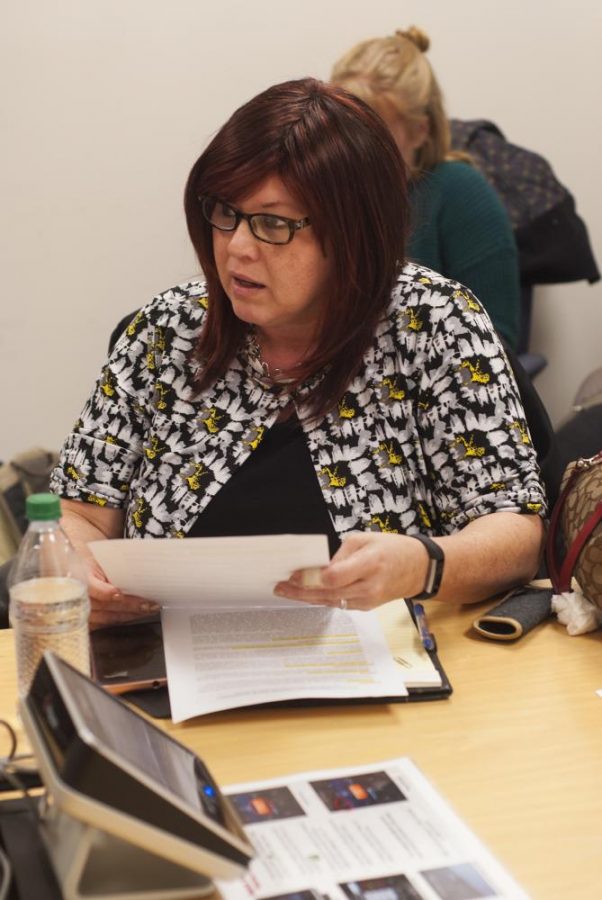WSU taking feedback on charging for electronic records
Charging for electronic records, formerly free, could help cover the time and labor to process requests
AYDEN MINER | The Daily Evergreen
Stephanie Kalasz from the Office of Public Records discusses proposed revisions to the WAC, Chapter 504-45.
October 11, 2017
More are requesting public records, but fewer want printed copies, meaning WSU’s public records office does much of its work free of charge for the requesters.
Officials from WSU’s public records office proposed rule changes that would allow the university to charge for electronic copies of public records, in line with laws passed by the state government.
Gov. Jay Inlsee signed two bills into law earlier this year requiring many government agencies, including universities, to start charging for electronic public records.
If WSU’s proposal is approved in its current form, the university would charge 15 cents per printed page, ten cents per electronic page, five cents for every four electronic attachments and ten cents per gigabyte.
Stacy Pearson, vice president for Finance and Administration, first unveiled the proposal before the Board of Regents late last month.
Most of the cost associated with public records, Pearson said, comes from the time and labor it takes to black out non-public information in the documents. She said charging for electronic records could help the office recover some of those costs.
The office can already charge for printed copies and up to 10 percent of the cost of producing the copies, but, Pearson said, that money is not nearly enough.
Stephanie Kalasz, WSU’s public records coordinator, said the office only charged requesters about $25 in total last year.
“So few people get paper copies anymore,” Kalasz said. “I don’t remember the last time we charged 15 cents for a page.”
One part-time and three full-time employees in the public records office have to handle hundreds of requests over the course of the year. Last year, Kalasz estimated the office handled about 430 requests. They have seen the same amount of requests this year so far.
“We are a little backlogged right now,” she said.
Some small governments struggle with “serial” public records requesters, people who make broad, repeated requests. Kalasz said WSU has serial requesters, but she attributed this year’s uptick to an increasing amount of conventional requests.
The Regents unanimously approved the proposal late September. The university is now accepting public feedback on the change. If no substantive changes are brought forward, the Regents will vote on turning the proposal into a policy at their Nov. 17 meeting at the Vancouver campus.
Nobody testified at Wednesday’s public hearing, which lasted around half an hour.










